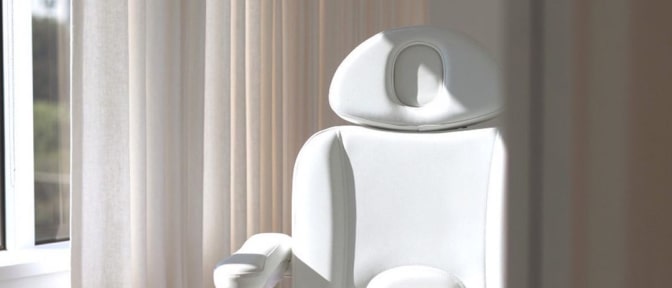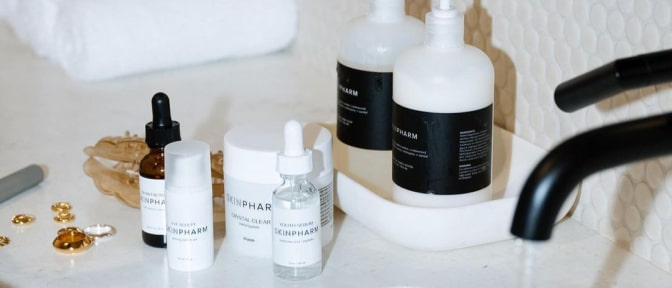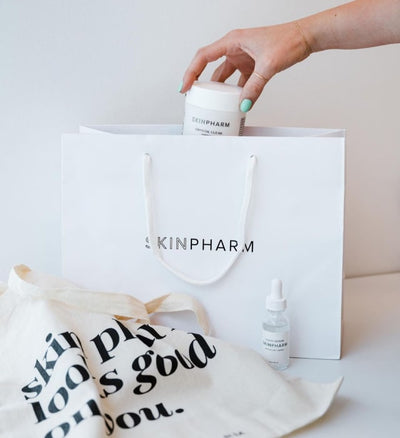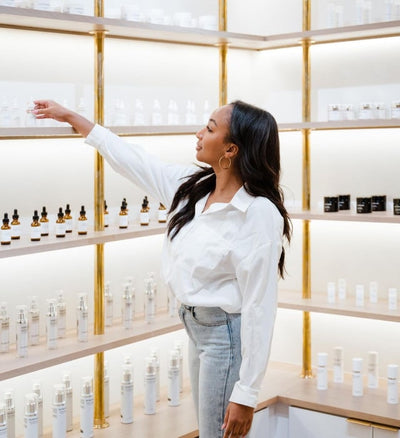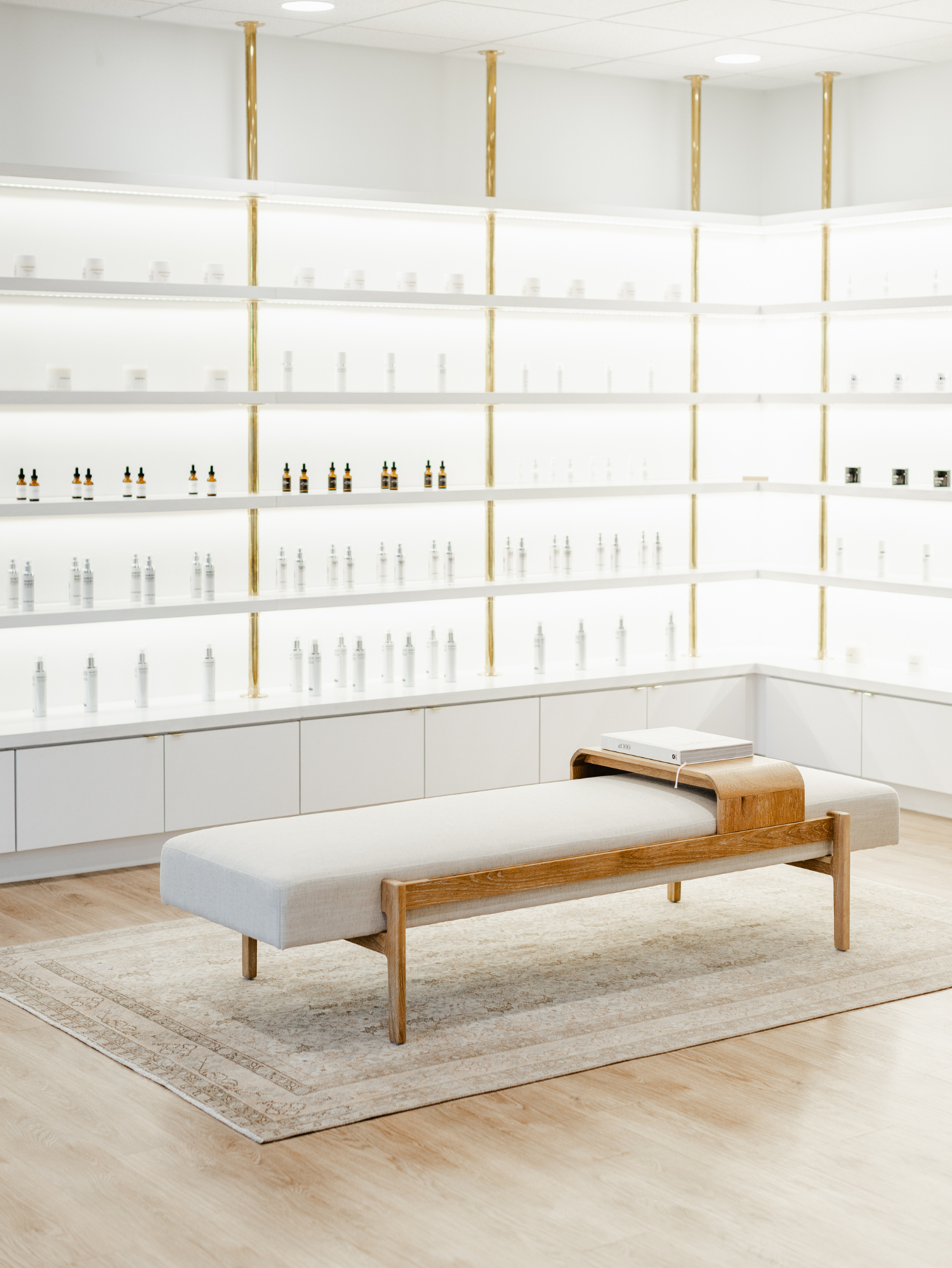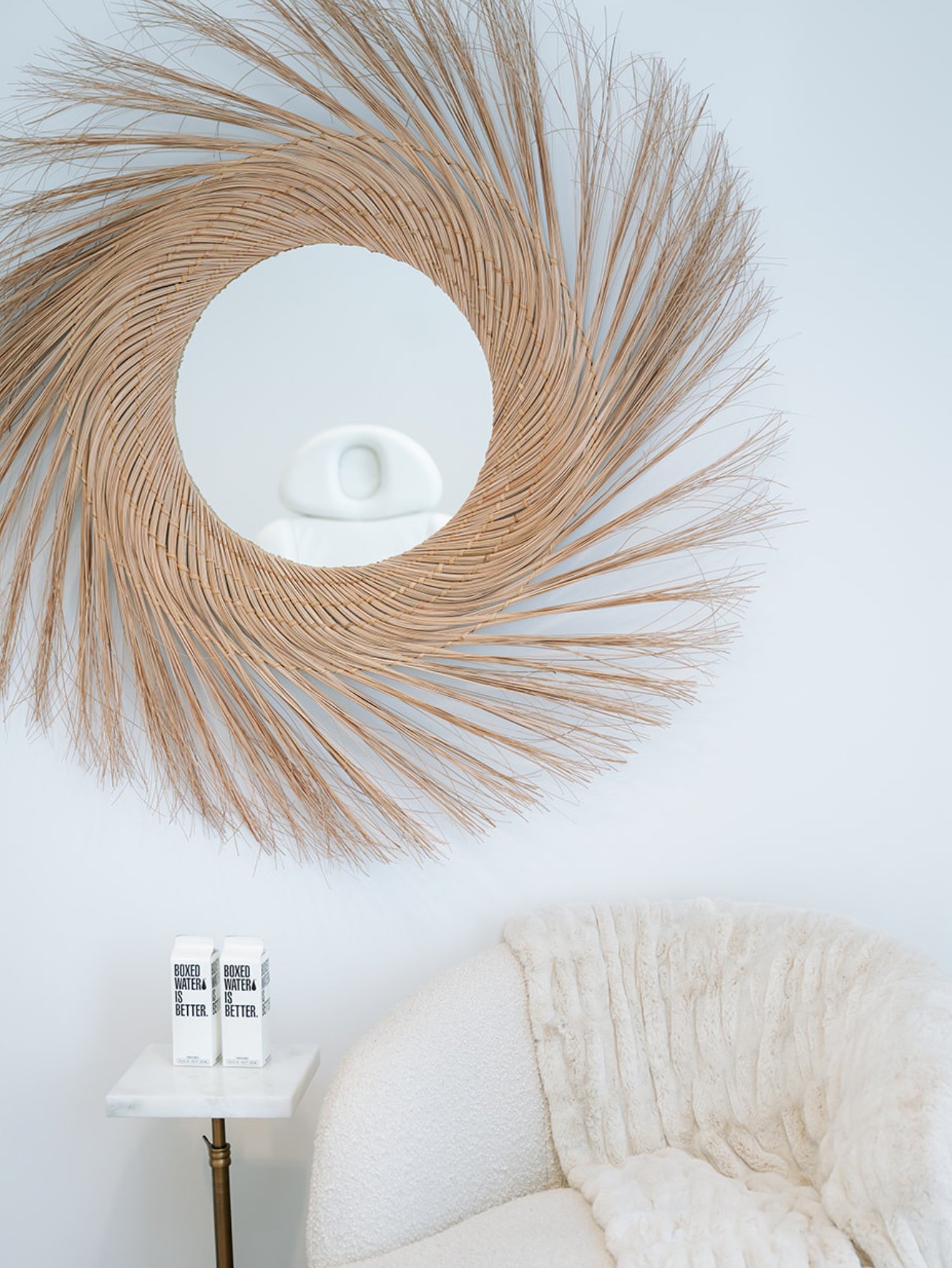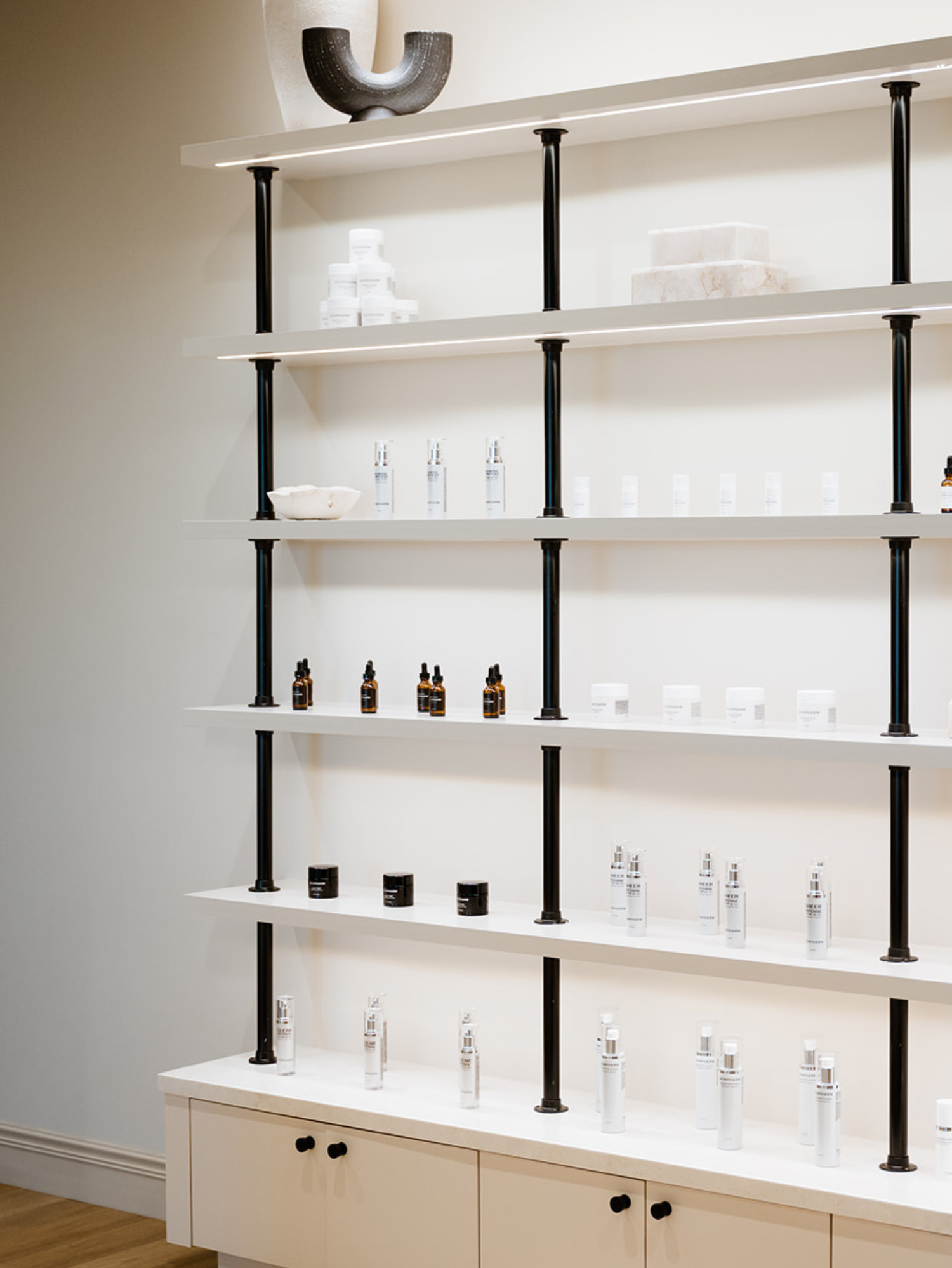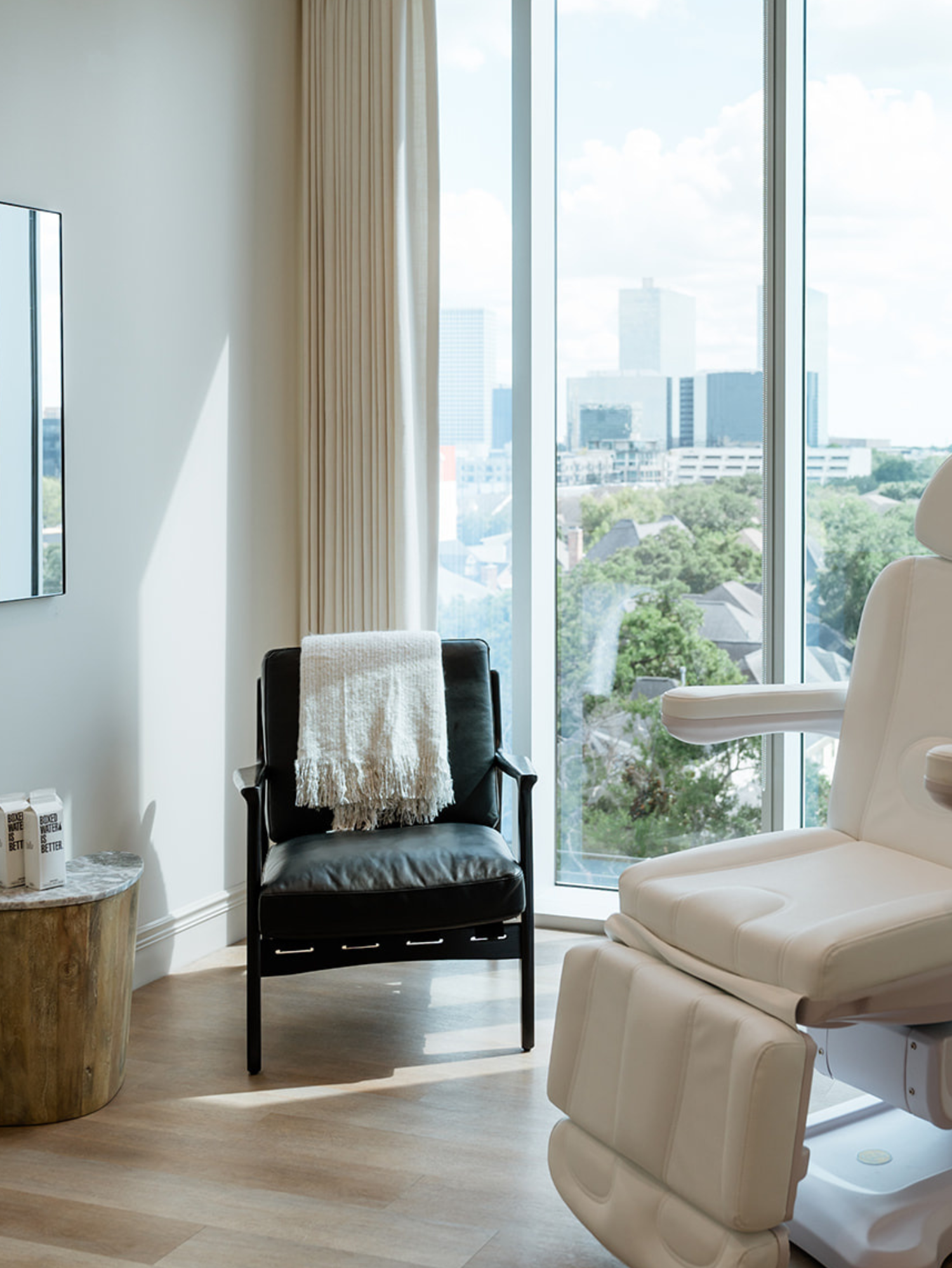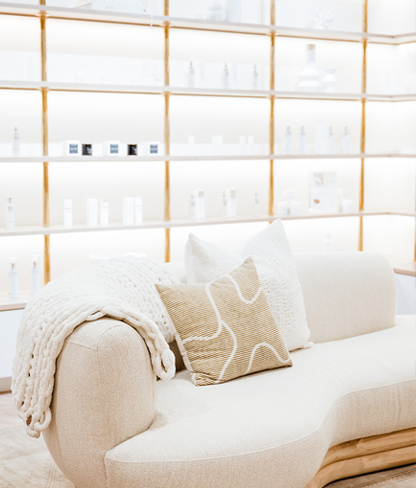Shop skin care
Clinics
VISIT OUR 9 CLINICS →
HOURS
Monday – Friday
9:30a – 5:30p
Help! When Should I Start Using Retinol?

If you’re familiar with the many benefits of retinol, you’re probably eager to incorporate it in your skin care routine.
It’s never too soon to get started, right? We’re here to answer that question for you.
By the end of this article, you’ll have a much better idea of when to start using retinol and how you can use it effectively to help you reach your goals. You’ll be able to create a new, retinol-based routine with the confidence that you’re doing the right thing in the right way.
Don’t worry, we're here to help!
When to start using retinol
Let’s start with the main question — when should you start incorporating retinol into your skin care routine?
There isn’t a magic answer to that question. The true answer is that it depends on your unique skin and what your skin care goals may be. While that makes it more complicated to decide when to start, we have some guidelines to help you narrow it down a little more.
The good news is that retinol is beneficial for people of a wide range of ages, so there is no “wrong” answer. It all depends on when you’re ready.
On the early side
To begin, how early can you start using retinol?
While this is a question you should discuss with your dermatologist, some people start to use retinol as early as in their late teens. Starting that early can help treat specific skin care issues, like blemishes, but it is also all about prevention.
According to the American Academy of Dermatology, it’s never too early to start a skin care routine.
On the “late” side
The good news is that it is never too late to start incorporating retinol into your skin care routine. People in the 60s and beyond have begun using retinol and still experienced results.
Unsure of where and when to start using retinol? Let’s get more specific.
How to start using retinol when you’re in your late teens or 20s
If you’re in your late teens or 20s and interested in starting retinol, we’re here for you! Starting retinol as early as possible is a great way to get ahead of the curve, with preventative techniques instead of needing to “fix” something.
A great way to start using retinol in this way is by incorporating a retinol serum into your routine.
Our Night Watch serum is perfect in this regard. The serum was designed to be applied at night, where it can supercharge your skin overnight. It is made with 0.2% pure retinol combined with bisabolol and vitamin C, which works together to keep the skin firm and radiant.
If you don’t already have a routine, now is the time to start. You can start with a simple routine, with a gentle cleanser, serum and moisturizer.
You can then amend your routine as you age and develop more specific concerns. It’s always best to start early, if only for the sake of getting used to having a set routine to stick to.
How to start using retinol when you’re in your 30s
If you’re in your 30s and feeling like you missed out on the retinol bandwagon, don’t worry! There’s still plenty of time to start using retinol effectively. The 30s are often when the first signs of aging show up on the skin.
If you’re already noticing them, retinol can help fade them.
Retinol can still help take care of any blemishes you may be experiencing, too. It helps speed up how quickly the skin can turn itself over while also helping to keep the pores open.
Unfortunately, blemishes can continue to happen well into your 30s and 40s, especially as your hormones start to shift and change.
How to start using retinol when you’re in your 40s
Just because you’re in your 40s doesn’t mean you should still be using retinol. At this point in your life, you may be pretty stuck in your existing skin care routine.
However, changing it up a bit to include retinol (or bumping up your percentage) can still have a positive impact on your skin. It can even be beneficial for people with wrinkles that they think are “set.”
In addition to using an effective retinol-based serum, you may also want to start using a moisturizer that also has retinol in it. Just make sure not to overdo it, as it can lead to irritation and redness.
How to start using retinol in your 50s – and beyond!
As we said, it’s never too late to start using retinol. You can even extend using retinol down your neck, too. This area of your body is just as delicate and can often show your age even more than your face because we take care of it far less.
For products with retinol on their ingredient list that work best with skin in this age range, look for products with as much hydration potential as possible.
Our skin always needs moisture, and this is most apparent as we age. Hydrated skin is also skin at its most resilient. Because the skin tends to thin out as we get older, anything that can make it stronger is a huge benefit.
Start off slow
Regardless of when you decide to start using retinol, it’s essential to start as slow as possible. When you receive your retinol, don’t just immediately start applying it to your face.
If you’re new to using the ingredient, it’s always a good idea to perform a patch test first. Patch tests involve applying a tiny amount of product to a small area of your face.
You’ll want to wait at least 24 hours and then check the site for any signs of irritation, redness, flaking, hives, etc. If you’re not noticing any significant concerns, applying it to the rest of your face should be ok.
Don’t use too much product, though.
Generally speaking, half a dropper or a small pea-sized amount is enough to cover your entire face. You just want a thin layer because any more than that is a waste of product and won’t add any benefits.
As for how often to use it, you should start with just a day or two a week. That gives your skin all of the time it needs to adjust, without as much concern about damaging the delicate moisture barrier.
If your skin tends to be sensitive, you may want to “buffer” your retinol by combining it with your moisturizer. While that does slightly dilute it, it also helps reduce irritation.
Once your skin appears to be less bothered by retinol application, you can increase use an extra day a week. Keep doing this until you’re up to using it as often as you want. If your skin gets sensitive again, you can drop back down (or stop entirely) for a while.
Listen to your skin; it will tell you what it needs.
Always wear your SPF!
It doesn’t matter what your age is; you should always make sure to use an SPF. SPF is vital when you are using retinol in your skin care routine.
A side effect of retinol, especially when you first begin using it, can make your skin extra sensitive.
That sensitivity can also lead to an increased risk of sunburn and sun damage, as UV radiation can more easily impact your skin. If you weren’t already aware, the sun is the number one environmental factor that leads to premature aging.
SPF helps prevent that from happening as much as possible. But don’t go with just any sunscreen. Experts suggest that the optimal sunscreen includes an SPF of 30 or higher, broad-spectrum protection (from UVA and UVB rays) and is considered water-resistant (waterproof sunscreen doesn’t exist).
A single shot glass full should be enough to cover your entire body but pay special attention to your face. Always reapply every two hours or more frequently if you’re in the water or sweating to keep your skin protected the entire time you’re outside.
To wrap things up...
When to start using retinol and how to start using it depends on you. What are your goals? How old are you now? Chances are, no matter how old you are, you’ll be able to find a benefit for your skin.
Skin Pharm's Night Watch retinol drops can work for any skin type, especially if you know how to use them correctly. Everyone deserves to experience the impressive benefits of retinol, no matter if you’re just starting with a skin care routine or have been focusing on your skin for decades.
SOURCES:
Act your age when it comes to skincare | American Academy of Dermatology (aad.org)
How to select a sunscreen | American Academy of Dermatology (aad.org)
